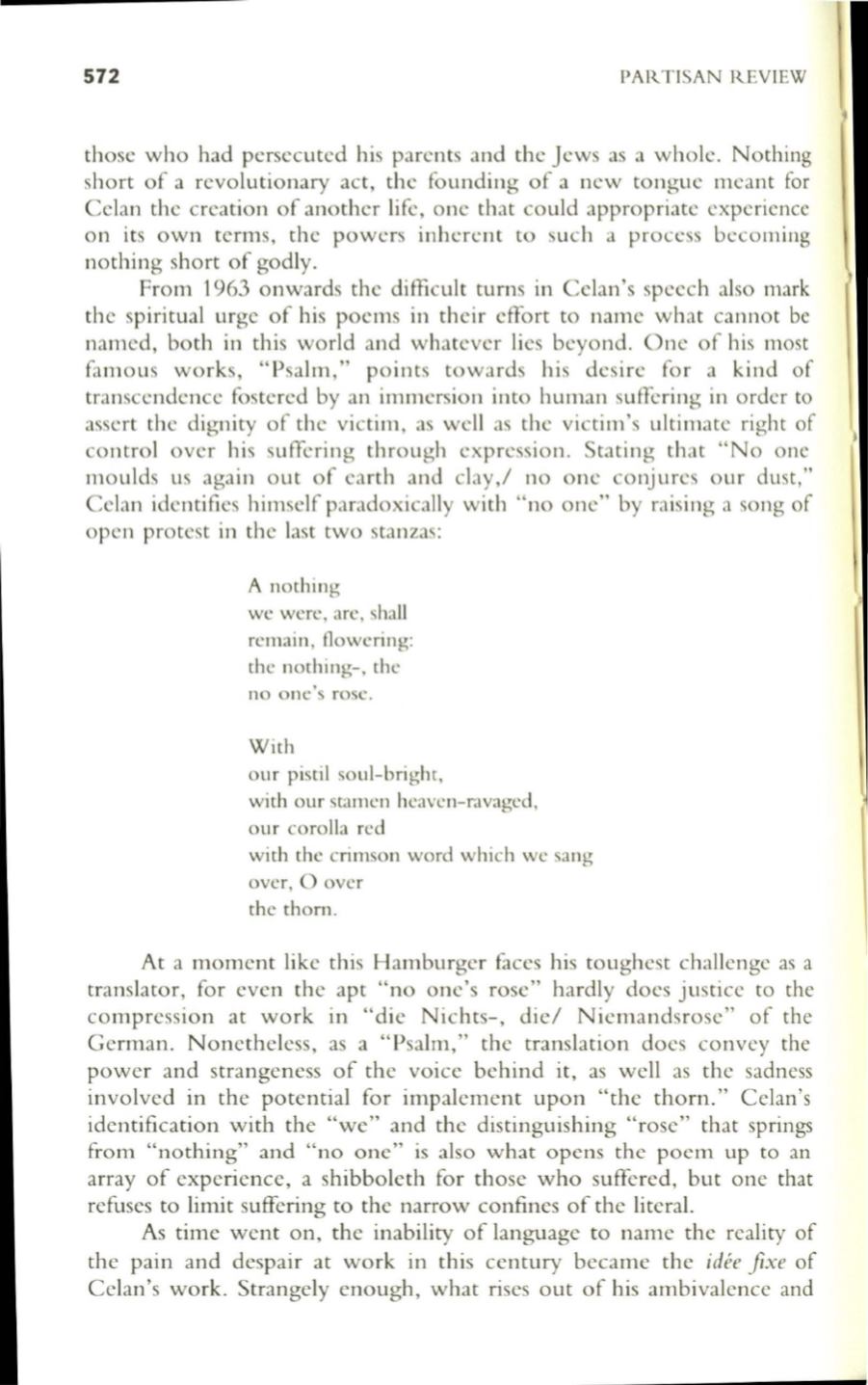
572
PARTISAN 1'Z£VIEW
those who had persecuted his parents and the Jews as a whole. Nothing
short of a revolutionary act, the founding of a new tongue meant for
Celan the creation of another life, one that could appropriate experience
on its own terms, the powers inherent to such a process becoming
nothing short of godly.
From 1963 onwards the difficu lt turns in Cclan's speech also mark
the spiritual urge of his poems in their effort to name what cannot be
named, both in this world and whatever lies beyond. One of his most
famous works, "Psalm," points towards his desire for a kind of
transcendence fostered by an immersion into human suffering in order to
assert the dignity of the victim, as well as the victim's ultimate right of
control over his suffering through expression. Stating that "No one
moulds us again out of earth and clay,! no one conjures our dust,"
Cclan identifies himself paradoxically with "no one" by raising a song of
open protest in the last two stanzas:
A nothing
we were, are, shall
remain, flowering:
the nothing- , the
no one's rose.
With
our pistil soul-bright,
with our stamen heaven-ravaged,
our corolla red
with the crimson word which we sang
over, 0 over
the thorn.
At a moment like this Hamburger faces his toughest challenge as a
translator, for even the apt "no one's rose" hardly does justice to the
compression at work in "die Nichts-, die/ Niemandsrose" of the
German. Nonetheless, as a "Psalm," the translation does convey the
power and strangeness of the voice behind it, as well as the sadness
involved in the potential for impalement upon "the thorn." Celan's
identification with the "we" and the distinguishing "rose" that springs
from "nothing" and "no one" is also what opens the poem up to an
array of experience, a shibboleth for those who suffered, but one that
refuses to limit suffering to the narrow confines of the literal.
As time went on, the inability of language to name the reality of
the pain and despair at work in this century became the
idee fixe
of
Cclan's work. Strangely enough, what rises out of his ambivalence and


